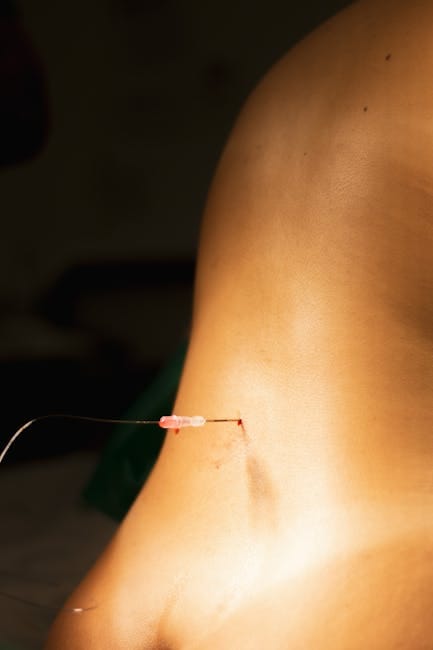The Ultimate Guide to Back Pain in Pregnancy
Pregnancy is a journey filled with a myriad of emotions and physical changes. While it’s a miraculous process, it can come with its fair share of discomforts, one of the most common being back pain. 🤰 In this guide, we’ll delve into the causes, remedies, and preventive measures for back pain during pregnancy, ensuring you have a smoother journey to motherhood.
Table of Contents
1. Introduction
2. Understanding Back Pain in Pregnancy
3. Common Causes of Back Pain During Pregnancy
4. Effective Remedies for Back Pain Relief
5. Preventive Measures for Back Pain
6. When to Seek Medical Advice
7. FAQs
8. Conclusion
Understanding Back Pain in Pregnancy
Back pain is a common complaint during pregnancy, affecting nearly half of all expectant mothers. This discomfort can range from mild aches to debilitating pain that interferes with daily activities. Understanding the root causes and knowing how to manage this pain is crucial for maintaining quality of life during these precious months.
Common Causes of Back Pain During Pregnancy
Recognizing the reasons behind back pain can help in addressing it effectively. Here are some common causes:
Weight Gain
During pregnancy, women typically gain between 25 and 35 pounds, which the spine must support. This additional weight can lead to increased stress on the back muscles, resulting in pain.
Posture Changes
The growing belly shifts your center of gravity, causing posture changes that may lead to muscle strain and back pain. As your pregnancy progresses, you might notice that your posture becomes more pronounced, further exacerbating discomfort.
Hormonal Changes
Pregnancy hormones like relaxin help prepare the body for childbirth by loosening ligaments, particularly in the pelvic area. While this is essential for delivery, it can also result in less stability and increased pain in the back.
Muscle Separation
As the uterus expands, the rectus abdominis muscles (commonly referred to as the “six-pack” muscles) may separate along the center seam. This condition, known as diastasis recti, can contribute to back pain as the abdominal muscles become less able to support your core.
Effective Remedies for Back Pain Relief
Fortunately, there are several strategies to alleviate back pain during pregnancy. Here are some tried-and-tested methods:
Exercise Regularly
Engaging in regular physical activity can strengthen the back and abdominal muscles, providing better support for the spine. Prenatal yoga, swimming, and walking are excellent options that are generally safe for expectant mothers.
Practice Good Posture
Maintaining proper posture can significantly reduce back pain. Stand tall with your chest high and shoulders back. When sitting, choose a chair that supports your back, and consider using a small pillow behind your lower back for additional support.
Use Heat and Cold Therapy
Applying heat or cold packs to the affected area can provide temporary relief from back pain. Use a warm compress or heating pad for about 20 minutes, or try an ice pack wrapped in a towel to reduce inflammation.
Consider Prenatal Massage
A prenatal massage from a certified therapist can help relax tense muscles, improve circulation, and relieve back pain. Always ensure the therapist is experienced in prenatal care to ensure safety for both the mother and the baby.
Preventive Measures for Back Pain
Wear Supportive Footwear
Invest in comfortable, low-heeled shoes with good arch support to help distribute your weight evenly and reduce strain on your back.
Sleep Smart
Opt for a firm mattress and sleep on your side, preferably with a pillow between your knees, to maintain spinal alignment and reduce back pain.
Mind Your Movements
Avoid heavy lifting, and if you must lift something, do so with your knees, not your back. Keep the object close to your body to minimize stress on your spine.
When to Seek Medical Advice
While back pain is common, it’s important to consult a healthcare provider if the pain is severe, persistent, or accompanied by other symptoms such as fever, tingling, or weakness in the legs. These could be signs of a more serious condition that requires medical attention.
FAQs
Q: Is back pain a sign of labor?
A: Back pain can be a sign of labor, especially if accompanied by regular contractions. However, back pain alone is not a definitive indicator. Always consult your healthcare provider if you’re unsure.
Q: Can I take pain medication for back pain during pregnancy?
A: It’s crucial to consult your healthcare provider before taking any medication during pregnancy. They can recommend safe pain relief options suitable for your situation.
Q: Will back pain go away after pregnancy?
A: For most women, back pain improves after delivery as the body returns to its pre-pregnancy state. However, some may continue to experience pain, in which case further evaluation may be necessary.
Conclusion
Back pain during pregnancy is a common challenge, but with the right knowledge and strategies, it can be managed effectively. By understanding the causes and implementing preventive measures, you can minimize discomfort and enjoy a healthier, more comfortable pregnancy. Remember, always consult your healthcare provider for personalized advice and treatment options. Here’s to a happy and healthy pregnancy journey! 🌟
